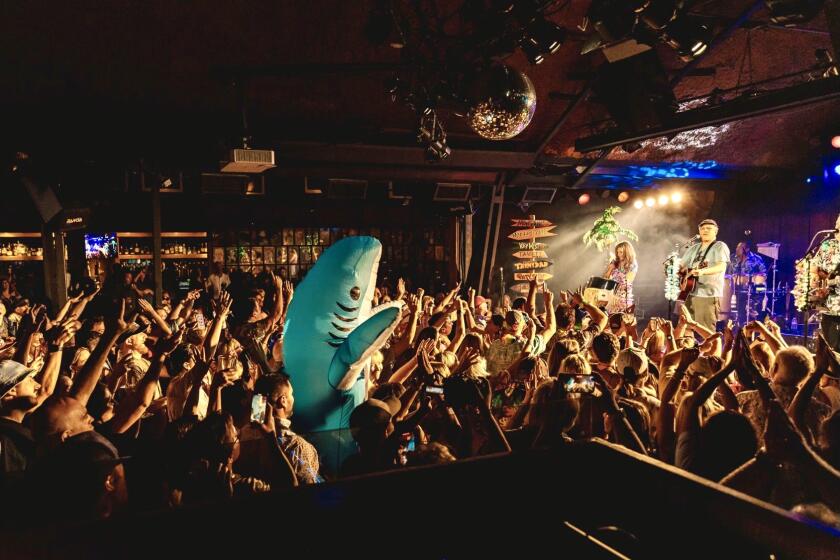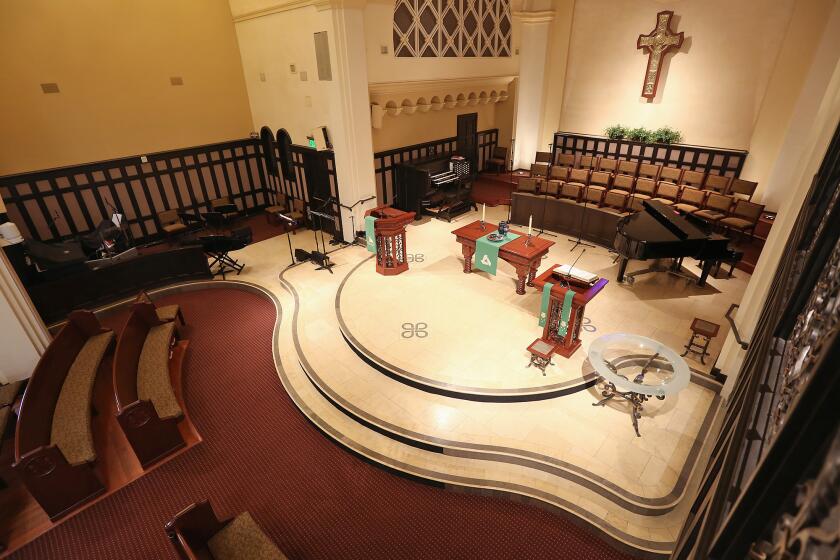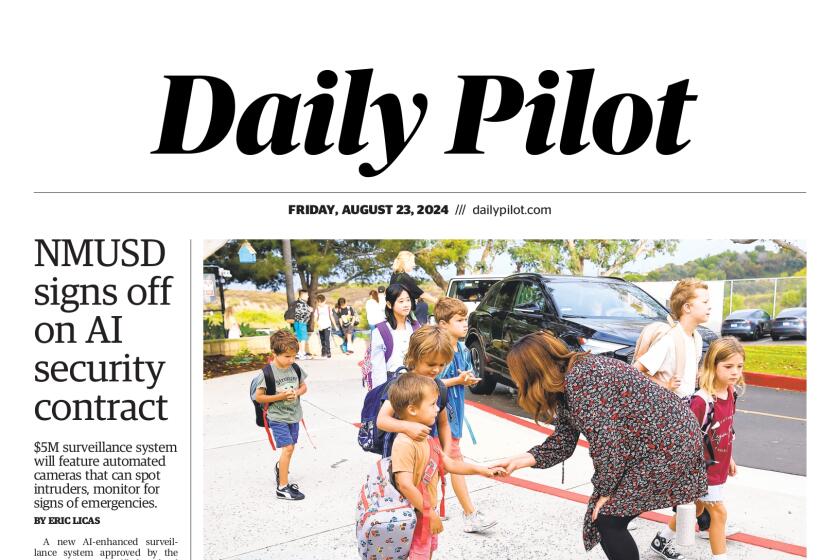Character counts
Former California Angels designated hitter Tim Salmon will be the featured guest speaker when Ron Salisbury’s Newport Beach restaurant, The Cannery, hosts another of its Hot Stove League dinners 7 p.m. Tuesday. The dinners give fans an opportunity to meet former baseball legends in a more informal setting, where they can discuss issues relating to past and future seasons.
Salmon made his major league debut with the Angels in 1992 and remained with the team until his retirement in October 2006. The 1993 American League Rookie of the Year still holds many Angels records. He is the club’s all-time home run leader (299) and scored the most runs (983). His 1,012 career RBIs with the Angels are second only to Garrett Anderson.
Returning to Southern California from his home in Arizona, Salmon recently took time to speak with Daily Pilot reporter Sue Thoensen.
Q: You spent your entire career with the Angels. Was that something you wanted to do from the beginning?
A: It kind of was. I came up through the minors, and for a player in that situation I was fortunate they kept me around. I was drafted in the late 80s. At that time, guys like Robin Yount (Milwaukee) and Don Mattingly (New York Yankees) stayed on the same team their entire career. As a young player, looking at them, they were synonymous with that organization. I wanted to strive to become like that.
Q: What’s the most important thing you’d want kids to know about you, as a role model?
A: Character counts. That’s a big thing for me, to treat people with respect. I had a great rapport with the media and the fans. You can’t go through the thing [career] and be concerned with just yourself. There are too many other pieces. My personality dictated more of what I did than any effort I made. Fans meant something to me. I always treated everyone with respect. And when you treat people that way, they’ll be friendly and respectful in return.
Q: What was your reaction to the Mitchell Report?
A: The intentions were right, I just don’t know if I agree with the way to handle the results. You want to make the game fair — at the end of the day you want to have an even playing field. I agree with no steroids. I was always an ambassador for making [the game] fair, and doing it right, and it was hard on so many fronts. You knew guys around you were playing beyond their capabilities. In my case, as I was getting older, my numbers were diminishing in respect to my age and physical limitations, which is the way it should be. I’ve never seen anyone inject, but I know some guys who admitted it, and some who didn’t, but there’s too much evidence showing they must have. Some guys got caught in some tough situations, and everybody justifies it differently. Also, if there’s nobody in the baseball commission making it into a big deal or enforcing it — nobody saying it’s wrong, then what? ... We want to paint everything black and white, but everyone had their own reasons for doing what they did. There were varying degrees. There were the ones [players] that were cheating, just trying to make themselves better, and I had problems with that. I had more compassion for those that had injuries, that were experiencing ups and downs in their career, and trying to take care of their families. You can’t put everyone in the same category, or issue the same punishment. Every case should be looked at and examined. There are obvious examples, like Canseco, where he just wanted be the best in the game. Then there’s Andy Pettite, when he went on the DL — holy cow. The media pressure in New York, just going through the healing, and the pressure to get back on the field. In any sport, you cannot understand the pressure when you’ve been injured. I’d buy it, that he said there are varying degrees of why they did it. The trump card, the real thing, is that with these guys it’s like being in a fraternity. They’re your teammates, and you have relationships. Just like family members, you have more compassion and understanding. If anything, I feel good about the fact that I did it the right way.
Q: Do you think the players’ records should be taken away?
A: Baseball has to come up with a new statistical analysis. This whole generation of players has tweaked the numbers. When you talk about Bonds, it’s hard. If you punish the guys that got caught, what about the guys that didn’t get caught? If you look at any player, they know how the numbers will increase at the peak of their career. The numbers that spiked all of a sudden on the guys being talked about — compare the numbers as they should have been. As much as I want to be positive, I might as well just deal with it — that was the only downside to my playing career.
Q: Is coaching a major league team something you’d like to do?
A: It would be fun to coach, but coaching in the majors is a huge time commitment, and you’re gone a lot, which is something I don’t want to do right now. I have four kids — 14, 11, and 7-year-old twins that are playing football, baseball, soccer, and I’m coaching them and spending my time nourishing a passion in them for athletics. These are the years where I need to be around, at home, just being a Dad. I’m keeping the right doors and the lines of communication open for the possibility of coaching later on.
Q: Anything else you’re focused on right now?
A: I support two faith-based charities located in Tustin. One is Family Solutions, a licensed foster care agency with group homes that help care for disadvantaged and troubled teens. Laurel House is the other — a residential home offering temporary housing for six teenage girls in crisis. On Jan. 28, the 10th Annual Tim Salmon Golf Classic will take place in Coto de Caza. Last year we raised $200,000, which is a big pickup for these small grass-roots organizations. The money we raise makes a big impact.
For tickets to the Hot Stove League dinner ($175) call (949) 566-0060.
SUE THOENSEN may be reached at (714) 966-4627 or at sue.thoensen@latimes.com.
All the latest on Orange County from Orange County.
Get our free TimesOC newsletter.
You may occasionally receive promotional content from the Daily Pilot.



